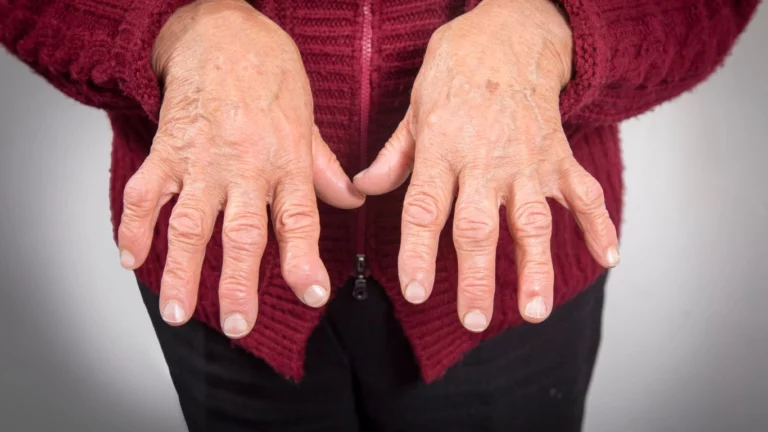Healthy Fats for Lowering Blood Pressure: What You Need to Know
Are you looking to manage your blood pressure naturally? Turns out, adding healthy fats to your diet can help lower blood pressure and improve your heart health. Let’s dive into the world of fats that are good for you!
Blood pressure is a big deal when it comes to overall health, and managing it is key to reducing the risk of heart disease, strokes, and other cardiovascular issues. But instead of relying solely on medications, you can make a huge difference by adjusting what you eat—specifically, adding healthy fats to your diet. These fats can play a pivotal role in lowering blood pressure, helping you live a healthier, more balanced life.
Before we jump into the specifics of which fats to choose, it’s important to understand how these fats impact your blood pressure. Healthy fats, like unsaturated fats and omega-3 fatty acids, are heart-healthy and can reduce the risks associated with high blood pressure. Let’s break it all down!

What Are Healthy Fats?
Healthy fats are those fats that support the overall functioning of your body, especially your heart. Unlike saturated and trans fats (which can raise bad cholesterol and increase blood pressure), healthy fats help reduce inflammation and support blood vessel function.
There are two main types of healthy fats to focus on: unsaturated fats and omega-3 fatty acids. Both types of fats can play a role in lowering your blood pressure and promoting heart health.

Healthy Fats to Lower Blood Pressure
1. Omega-3 Fatty Acids
Omega-3s are some of the best fats for lowering blood pressure. These fatty acids are known for their anti-inflammatory properties and their ability to help reduce blood pressure levels. Omega-3s also help lower triglycerides and reduce the formation of blood clots.
Sources of Omega-3s:
- Fatty fish like salmon, mackerel, and sardines
- Walnuts
- Flaxseeds and chia seeds
- Hemp seeds
Incorporating these foods into your diet can go a long way in reducing your blood pressure.
2. Monounsaturated Fats
Monounsaturated fats are great for heart health because they can lower LDL (bad) cholesterol levels and help lower blood pressure. They also provide anti-inflammatory benefits that can contribute to a healthier cardiovascular system.
Sources of Monounsaturated Fats:
- Olive oil (a staple in the Mediterranean diet)
- Avocados
- Nuts like almonds, cashews, and pistachios
- Seeds like sesame and pumpkin
These fats are incredibly versatile and can be used in salads, cooking, and as snacks.
3. Polyunsaturated Fats
Polyunsaturated fats, like omega-3 fatty acids, are good for the heart and help reduce blood pressure. They play an essential role in reducing inflammation and improving the elasticity of your blood vessels.
Sources of Polyunsaturated Fats:
- Fatty fish (again, think salmon, mackerel)
- Walnuts
- Soybeans and tofu
- Sunflower and flaxseed oils
These fats not only help with blood pressure but are also associated with reducing the risk of cardiovascular disease.

How Healthy Fats Help Lower Blood Pressure
You might be wondering: how exactly do these fats work to lower blood pressure? Let’s take a deeper dive into the mechanisms:
Reduce Inflammation
Chronic inflammation is one of the leading causes of high blood pressure. Healthy fats, particularly omega-3s, help reduce inflammation, which in turn helps to lower blood pressure. These fats support the functioning of blood vessels, making it easier for blood to flow freely.
Support Blood Vessel Function
Healthy fats help maintain the health of your blood vessels, making them more flexible and less prone to narrowing. This flexibility reduces the overall resistance in your arteries, lowering the strain on your heart and lowering your blood pressure.
Reduce Triglyceride Levels
High triglyceride levels (a type of fat found in your blood) are linked to an increased risk of high blood pressure and heart disease. By incorporating omega-3 fatty acids into your diet, you can lower triglyceride levels and improve your overall blood pressure levels.

Tips for Incorporating Healthy Fats into Your Diet
Now that you know which fats are best for lowering blood pressure, here are a few practical tips on how to include them in your daily meals:
1. Switch to Olive Oil
Use olive oil in your cooking and as a salad dressing. It’s rich in monounsaturated fats and offers many health benefits, including reducing blood pressure.
2. Add More Fish to Your Meals
Aim to eat fatty fish like salmon or mackerel at least two to three times a week. These fish are rich in omega-3 fatty acids, which are great for heart health.
3. Snack on Nuts
Nuts like almonds, walnuts, and pistachios are not only delicious but also great sources of healthy fats. A small handful as a snack can help improve your blood pressure levels.
4. Include Avocados in Your Diet
Avocados are a fantastic source of monounsaturated fats and are incredibly versatile. You can add them to salads, sandwiches, or even just eat them with a sprinkle of salt and pepper.
5. Add Chia Seeds to Smoothies
Chia seeds are a great plant-based source of omega-3s. Try adding a tablespoon to your smoothies, oatmeal, or yogurt.
Conclusion
Healthy fats are an essential part of any heart-healthy diet, and they can help lower your blood pressure. By incorporating foods like fatty fish, nuts, olive oil, and avocado into your meals, you can reduce your blood pressure and improve your overall health. Remember, moderation is key, so aim for a balanced approach to your diet.
Appendices
FAQs
Here are some common questions about healthy fats and blood pressure:
- Can omega-3s really lower my blood pressure? Yes, omega-3 fatty acids have been shown to help reduce blood pressure by improving blood vessel health and reducing inflammation.
- Is olive oil good for lowering blood pressure? Absolutely! Olive oil is rich in monounsaturated fats, which are known to help reduce blood pressure and support heart health.
- How much fat should I eat to lower my blood pressure? It’s best to focus on eating a balanced diet with healthy fats, aiming for about 25-35% of your daily calories from fat. Talk to your doctor or dietitian for personalized recommendations.
- Are there any unhealthy fats I should avoid? Yes, it’s important to avoid trans fats and limit saturated fats, as they can raise your blood pressure and increase your risk of heart disease.
- Can I take fish oil supplements for blood pressure? Fish oil supplements can be beneficial for heart health, but it’s best to get omega-3s from whole foods. Always check with your doctor before starting any new supplements.
References
For further information on healthy fats and blood pressure, check out these resources:
- American Heart Association (2023). The Role of Fats in Heart Health. Read Article
- National Institutes of Health (2024). Healthy Eating for Heart Health. Read Article
Disclaimer
Disclaimer: The information provided in this article is for educational purposes only and does not substitute for professional medical advice. Always consult with a healthcare provider before making changes to your diet or lifestyle. Individual health needs may vary.

Dr. Gwenna Aazee is a board-certified Internal Medicine Physician with a special focus on hypertension management, chronic disease prevention, and patient education. With years of experience in both clinical practice and medical writing, she’s passionate about turning evidence-based medicine into accessible, actionable advice. Through her work at Healthusias.com, Dr. Aazee empowers readers to take charge of their health with confidence and clarity. Off the clock, she enjoys deep dives into nutrition research, long walks with her rescue pup, and simplifying medical jargon one article at a time.







